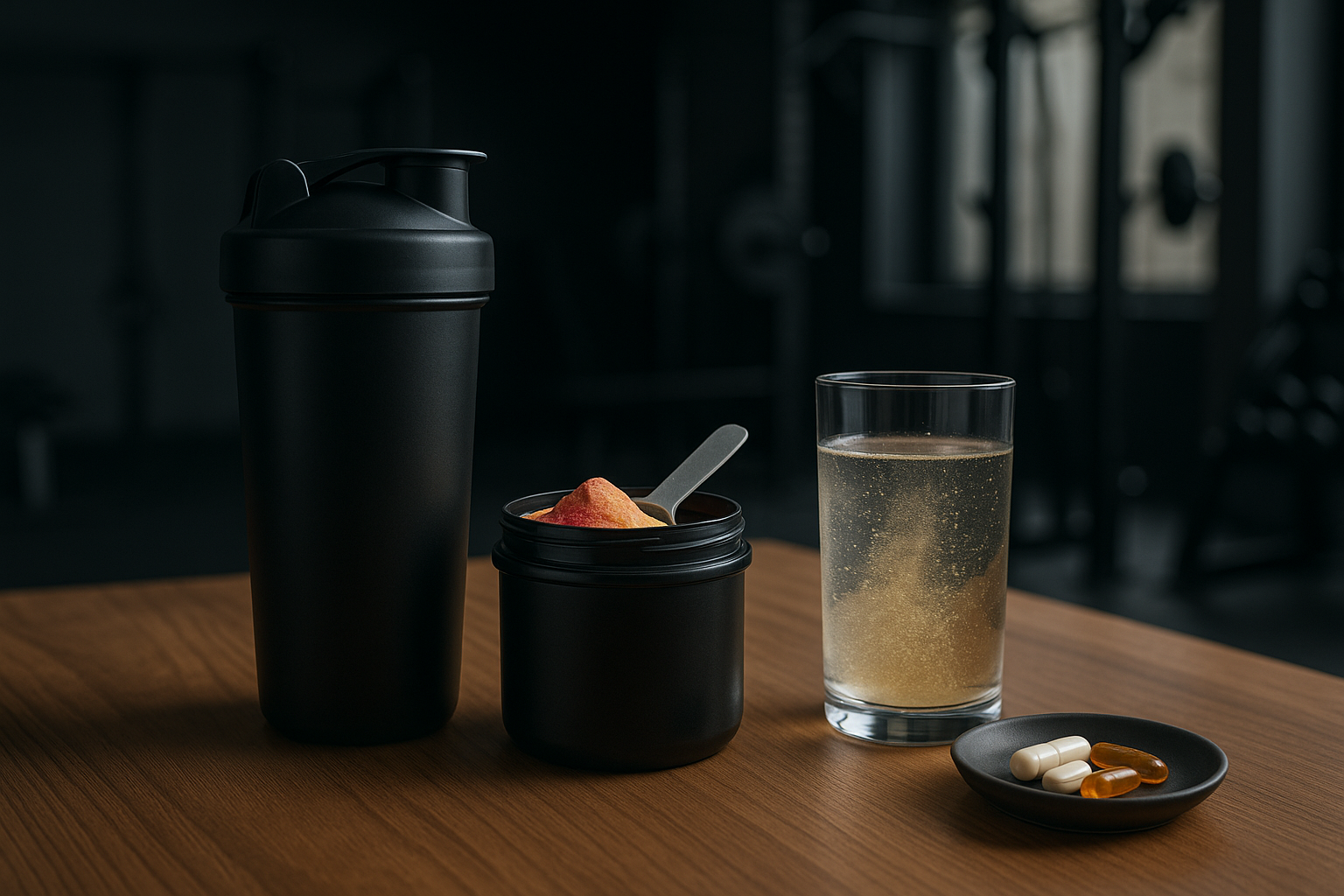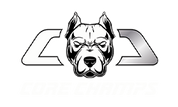
Post-Workout Recovery: Essential Supplements Checklist
Want faster recovery after workouts? Supplements can help your muscles repair, restore energy, and reduce soreness. Here’s what you need to know:
- Whey Protein Isolate: Take 20–30g within 30–60 minutes post-workout to promote muscle repair.
- BCAAs: Reduce soreness and fatigue with 3–20g daily, split between pre-, during, and post-workout.
- Electrolytes: Replenish sodium, potassium, and magnesium lost during exercise to stay hydrated.
- Curcumin: Manage inflammation with 500–2,000mg daily (ensure it includes black pepper extract for better absorption).
- Tart Cherry: Reduce muscle pain with 8–12 oz of juice (or 1 oz concentrate) twice daily, starting 4–5 days before intense activity.
Pro Tip: Quality matters. Choose third-party tested supplements (look for NSF Certified for Sport or Informed Sport logos). Always check labels for clear ingredient and dosage information.
Whether you're lifting weights or running marathons, the right supplements can speed up recovery and get you ready for your next session. Keep reading for detailed recommendations and tips!
Key Post-Workout Supplements
Recovering effectively after a workout starts with choosing the right supplements. Here's a closer look at some of the most beneficial options to help you bounce back stronger.
Whey Protein Isolate
Whey protein isolate is one of the best sources of protein, boasting over 90% protein content by weight. Its fast absorption ensures your muscles get the amino acids they need for repair and growth. Aim to consume 20–30 grams within 30–60 minutes after your workout.
"Maximize your post-workout nutrition by ensuring you get your protein from a quality protein source. Learn what makes Whey Isolate one of the best sources." - Kris Gethin
BCAAs
Branched-chain amino acids (BCAAs) are key players in reducing muscle soreness and promoting muscle protein synthesis. Studies show BCAAs can lower muscle damage markers and ease delayed onset muscle soreness (DOMS).
For optimal results, take 3–20 grams daily, or about 0.2 grams per kilogram of body weight. Splitting your intake between pre- and post-workout periods can provide the best benefits.
| Timing | BCAA Dosage | Primary Benefit |
|---|---|---|
| Pre-workout | 4–5 g | Boosts energy and helps prevent muscle breakdown |
| During workout | 4–5 g | Supports endurance and reduces fatigue |
| Post-workout | 4–5 g | Aids recovery and alleviates muscle soreness |
Electrolytes
Replenishing electrolytes is essential, especially after intense or long workouts. On average, a person loses about 500 mg of sodium per hour during exercise, with some losing over 1,000 mg.
"It's crucial not to just drink plain water here, especially after longer or harder sessions." - Claire Shorenstein, RD
To restore balance, choose supplements that include sodium, potassium, magnesium, and calcium. Look for products with third-party testing and clear labeling to ensure quality.
Supporting Recovery Supplements
Adding specific supplements to your routine can further aid recovery by helping to reduce inflammation and speed up the repair process.
Curcumin
Curcumin, the active ingredient in turmeric, is well-known for its anti-inflammatory properties. Research suggests that taking between 90 and 5,000 mg of curcumin daily can help reduce muscle pain and damage. To get the most out of curcumin, look for products that include black pepper extract (piperine), which enhances absorption. Many studies have found doses of 500–2,000 mg per day, taken either before or after exercise, to be effective in managing muscle soreness.
"This applied study is the first in elite footballers to show that a curcumin-containing supplementation may attenuate a biomarker of inflammation [CRP] and soreness post-match play." - UK-based researchers
Another excellent option for recovery is tart cherry, which is highly regarded for its anti-inflammatory benefits.
Tart Cherry
Tart cherry supplements are especially beneficial for endurance athletes. Research shows that athletes who consumed tart cherry experienced a 66% reduction in muscle pain compared to those taking a placebo. Typical supplementation involves drinking 8–12 oz of tart cherry juice (or 1 oz of concentrate) twice daily. For example, marathon runners who used tart cherry saw a 47% decrease in inflammation. According to Dr. Kuehl, the anti-inflammatory properties of tart cherry are comparable to taking 600–800 mg of ibuprofen.
"Most studies use 8 to 12 oz (1 oz if concentrate form) twice a day, 4- to 5-d loading phase before the event, and 2 to 3 d after to promote recovery." - KC Vitale et al.
For the best results, start tart cherry supplementation 4–5 days before intense training or competition, and continue for 2–3 days afterward. Keep in mind that one serving of 100% tart cherry juice contains approximately 33 grams of sugar.
sbb-itb-d791738
Supplement Quality Guidelines
When it comes to supplements, quality and safety should always come first, especially since regulations in this area can be limited.
Testing and Certification
Third-party testing plays a crucial role in ensuring that supplements meet high standards for quality and safety. Two of the most respected certifications in the industry are NSF Certified for Sport and Informed Sport, both known for their rigorous testing processes to identify banned substances.
- NSF Certified for Sport checks for around 280 banned substances.
- Informed Sport screens over 250 compounds and tests every batch before it hits the market.
Here’s how you can verify a supplement’s certification:
- Look for certification logos on the product packaging.
- Use the NSF Certified for Sport app to scan labels.
- Visit NSFSport.com to verify lot numbers.
- Check manufacturer websites for batch testing details.
"NSF provides a service that makes companies hold themselves to a higher standard, and the process to go through that is very rigorous. Having that peace of mind knowing that a company went that extra step to really follow through, has integrity, and makes sure they're providing really high-quality products makes a big difference. As an athlete or someone who's competitive, NSF certification is something you should really look for in your supplements."
- Tim Caron, Strength Training Expert and Momentous Advisor
Certification is a great starting point, but transparent labeling is just as critical when assessing a product’s quality.
Label Clarity
Reading supplement labels carefully can help you spot high-quality products and steer clear of potentially harmful ones. A study by ConsumerLab.com revealed that over 20% of more than 6,000 dietary supplements tested had issues.
Here’s what to look for on the label:
- Clear listing of active ingredients with exact amounts.
- Accurate serving size and dosage information.
- Lot numbers, expiration dates, and manufacturer details.
- The required FDA disclaimer.
- Warning statements about potential risks or interactions.
Be cautious of red flags such as:
- Terms like "proprietary blend" or "formula", which may hide ingredient details.
- Excessive amounts of vitamins or minerals (over 100% of the Daily Value).
- Missing manufacturer information or lot numbers.
- Claims that seem too good to be true or unrealistic health promises.
"Choosing a high-quality supplement is important because, just like the food you eat, it's also going into your body."
- Elizabeth Shaw, M.S., RDN, CPT
When evaluating supplements, prioritize transparency and third-party verification over price. For protein supplements, ensure the cost aligns with market averages and confirm that leucine content is at least 2.7g per 25g of protein.
Creating Your Recovery Plan
When it comes to recovery, supplements can play a key role in supporting your goals. To make the most of these benefits, it's essential to create a recovery plan tailored to your needs. According to the International Society of Sports Nutrition (ISSN), consuming 20 to 40 grams of protein every 3–4 hours can enhance muscle recovery, exercise performance, and body composition.
Start by calculating your daily protein requirements. For muscle growth and maintenance, aim for 1.4–2.0 grams of protein per kilogram of body weight [1]. If you're involved in endurance activities like running or cycling, you’ll need to focus on carbohydrates too - 3.6–5.5 grams per pound of body weight can help replenish glycogen stores effectively.
Steps to Build Your Recovery Plan
- Assess Your Foundation Understanding your current nutritional status is the first step. A blood test can help you identify any deficiencies or gaps that need to be addressed.
-
Match Supplements to Your Workouts
Different types of exercise call for different supplements. Here's a quick guide:
Workout Type Primary Supplements Timing Strength Whey Protein, Creatine Within 30 minutes post-workout Endurance BCAAs, Electrolytes During and after exercise High-Intensity Protein + Carb blend Immediately post-workout - Create Your Schedule Consistency is key. Spread your protein intake throughout the day rather than consuming it all at once. This approach ensures your body has a steady supply of nutrients to support recovery and performance.
"Although the focus of sports nutrition should be geared toward achieving the proper balance of macronutrients – protein, carbohydrates, and fats, ensuring adequate consumption of micronutrients – vitamins and minerals – is also integral to athletic performance and overall health."
- Carina Toledo, MS, MHI, CNS
For those with busy schedules, ready-to-drink shakes or pre-portioned supplement packets can save time. Be sure to select products that meet your dietary needs, such as vegan or gluten-free options. Track your intake and monitor your progress, making adjustments to your recovery plan every 4–6 weeks as needed.
FAQs
What are the best post-workout supplements to support my fitness goals?
To find the right post-workout supplements for your fitness goals, start by pinpointing what you aim to achieve - whether it's speeding up muscle recovery, replenishing energy stores, or easing muscle soreness. For muscle repair, protein powders like whey or casein are a great option because they’re packed with amino acids. You might also consider BCAAs (branched-chain amino acids), which can help with reducing soreness and enhancing recovery. Creatine is another solid choice, especially if you're looking to boost strength and muscle performance.
For those tackling long or intense workouts, staying hydrated is key. In this case, electrolytes can help maintain your energy levels and keep your body balanced. It’s always a good idea to consult a healthcare professional or a nutritionist to make sure your supplement choices fit your diet, fitness routine, and overall health.
How can I tell if a supplement is high-quality and safe to use?
When picking a supplement, it's important to look for products that have been third-party tested and certified by trusted organizations like the United States Pharmacopeia (USP) or NSF International. These certifications ensure the product contains the ingredients it claims to, in the right amounts, and that it's free from harmful contaminants.
Make sure the label includes a clear Supplement Facts panel that details the ingredients, serving sizes, and any additional components. Be cautious of products with vague claims, flashy marketing, or promises that sound too good to be true - these are often signs of lower-quality supplements. Stick with well-known brands that emphasize transparency and maintain strict quality standards.
What’s the best way to use supplements for faster and more effective post-workout recovery?
To get the most out of your post-workout recovery, timing and consistency are crucial when it comes to supplements. Start by taking protein powder within 30 minutes after your workout. This helps repair and build muscles effectively. BCAAs (branched-chain amino acids) can be taken before, during, or after your workout - whichever fits your routine - but regular use is key for optimal benefits. Creatine is flexible and can be used anytime, though many prefer it after exercise to aid recovery. If your workouts are long or intense, adding electrolytes can help restore lost minerals and keep you hydrated.
Incorporate these supplements into your routine through shakes, protein bars, or nutrient-packed meals. Before starting any new supplement, it’s a good idea to check with a healthcare provider to make sure it aligns with your fitness and health goals.


